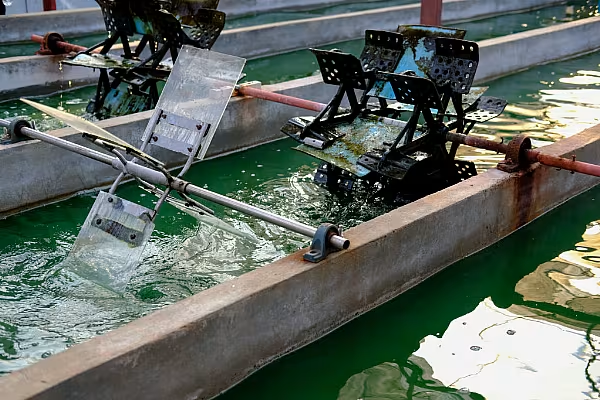In early September, Finnish food firm Valio announced that it would be stepping up its work with Origin by Ocean, a company specialising in harvesting sea- and ocean-based biomass, to explore the use of Baltic Sea algae in food production.
Valio is looking to incorporate ingredients and processing agents developed from algae in its snacking products, with the products maintaining the same texture and quality as if traditional processing agents were used.
It also said that it believes future algae applications may lead into entirely new kind of products.
New Ingredient
"Until now, algae-based texture-controlling agents have not been available in Finland," commented Valio SVP for research and development, Harri Kallioinen. "We at Valio have accumulated a wide variety of experience of different ingredients over the decades, from milk to oats and berries. Now, it's fun to get to test an ingredient that’s all new to use with a young company."
Origin by Ocean's 'vision' is to develop an algae-based business ecosystem in the Baltic Sea, with potential applications in food, beverage, cosmetics and pharma – the group is hoping to have Finland's first neo-ecology biorefinery algae processing plant fully operational by 2025.
Future Food Source
And they may be on to something. While many consumers would consider algae to be a green, slimy material found in ponds and aquariums, for some, it represents the food source of the future.
If, as the United Nations estimates, global food production will ned to increase by as much as 70% by 2050 to feed the planet, alternative food sources, such as algae, could be an increasingly important part of the menu.
Agricultural services giant Cargill certainly believes in the potential for algae as a future food source; in 2016, the group teamed up with Algae Naturaal Food to commence growing organic micro algae in Strasbourg's port area.
As Cargill said at the time, the process, which sees Algae Natural Food transform the Cargill Malt processing water and CO2 into a source of energy and nutrients for the cultivation of organic microalgae, not only presents food opportunities, it also enables Cargill to reuse 10% of its waste water, recycle heat from its processing activities, and reduce CO2 emissions by 5%.
Heath Benefits
Algae is also proven to have health benefits – particularly a variant known as spirulina, which has been dubbed 'the best food for humanity in the 21st century' by the World Health Organisation. Spriulina is a high-protein micro algae that is a very good source of iron (20 times that of wheatgerm), beta carotene (30 times that of carrots) and vitamins (four times more vitamin B12 than raw liver).
Due to its blue-green colour, spirulina (which is commonly available in powder, flake or paste form, is becoming an on-trend ingredient in the smoothie and ice cream world, adding a vibrant touch to traditional recipes.
And it's only likely to get even bigger. According to a recent report by Reportlinker, the global algae products market stood at $9.9 billion (€8.99 billion) in 2018 and is projected to grow at a CAGR of over 7% over the next five years to reach $14.99 billion (€13.6 billion) by 2024.
Time to think differently about the slime growing in your garden pond, in other words?
© 2019 European Supermarket Magazine – your source for the latest retail news. Article by Stephen Wynne-Jones. Click subscribe to sign up to ESM: The European Supermarket Magazine.














